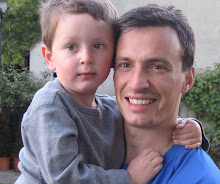
It was the morning after the dreadful night before and I was making my way with my best mate in a gold, rust-ridden 1985 Volkswagen Passat into one of South Africa’s informal settlements – Sweet Home Farm.
We hadn’t even driven round the first corner when the young boys from the community spotted our car. Worse, they knew we were English. Before you could even utter the words ‘goal-line technology’, these boys were running up to the car laughing and holding up four fingers with one hand and just one solitary finger with the other. ‘Germany 4; England 1’, they shouted with glee. And with that went my faint hope that this might be the one place where that news had filtered through...
But if I needed a perspective for my football blues, I had come to the right place. Sweet Home Farm is one of 323 informal settlements in Cape Town. It is located East of Cape Town's Southern Suburbs within the district of Philippi. The settlement started in 1995 on a rubbish dump when 12 families arrived from the Eastern Cape – looking for the promise of work in the aftermath of apartheid. Today, there are 17,000 people in Sweet Home Farm. The result of this massive urban migration (some one million have arrived in Cape Town since 1994) is an unemployment rate of up to 70%. The consequence is predictable; grinding poverty.
The constitution of South Africa confers the right for families to stay in a location unless the government can provide a suitable alternative. In the case of Sweet Home Farm, no alternative has been given. But the people live in a legal limbo land. An informal settlement means that residents don’t enjoy the same privileges as those living in formal settlements . For example, it took Cape Town City Council ten years to provide any toilets in Sweet Home Farm and basic water points have only just been provided. Only in formal settlements can families attain the title deeds in order to own a plot of land and then your own home. Home ownership is one of the main ways poor families can pass on a better hope for their children’s future. As Joy Klimbashe – the co-ordinator for the SHF team which works through 'The Warehouse' charity - put it, ‘if people have a home, it brings dignity and dignity changes people’s mindset – suddenly they have rights.’
I asked Joy why on earth the government hadn’t designated Sweet Home Farm a formal settlement so that the community could start to develop? He told me that the issue comes down to two men in Johannesburg who own half the land and have so far refused to sell it to the government. If the land isn’t municipally owned, then it cannot be declared a formal settlement.
My reaction? Appalled. Apalled that two men could halt the progress and development for 17,000 people. Appalled by the apparent desparate lack of urgency on behalf of the City Council to resolve an issue that has been rolling for a decade. Appalled that the power of the wealthy could be used to undermine the future of the poor.
However, hope is a renewable energy resource that is still there to be harnessed. The Warehouse is one of the few organisations committed to seeing the development of Sweet Home Farm. They have also identified a window of opportunity. In 2011, there are local government elections in Cape Town. It is a chance to put the scandal of Sweet Home Farm firmly on the local political agenda. A targeted and determined advocacy campaign to see the city authorities designate Sweet Home Farm a formal settlement is needed alongside work to mobilise community leadership from within Sweet Home Farm to articulate their own struggle.
That is much easier said than done. But in a country that has defeated apartheid, you have to believe that it is within the realms of possibility to see Sweet Home Farm transformed into a entitled, represented and even prosperous community. Gaining formal settlement status is the critical first step and like England’s goal that wasn’t against Germany, there is no sensible reason why the authorities haven't allowed this.



